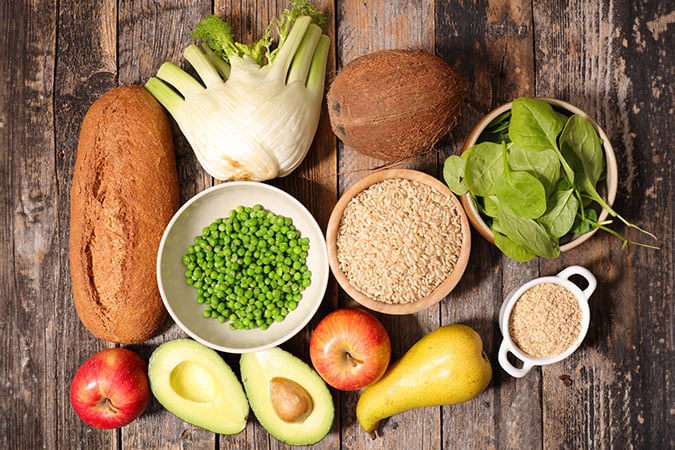Grant title
Exploitation of molecular and mechanistic data to identify modifiable factors which cause prostate cancer incidence and progression and elucidate their mechanism of action
Scientific abstract
Background
Prostate cancer is the second most common cancer among men across the world and the most common in many countries. Evidence from ecological studies points towards important environmental causes and dietary factors have been implicated.
However, despite a huge amount of research, very few modifiable risk factors have been established, although body fatness and height seem to explain some of the risk, particularly for advanced disease. In a recent World Cancer Research Fund International systematic review update the conclusions for many nutritional factors were actually downgraded, due to inconsistencies between studies and possibly also due to the heterogeneous nature of prostate cancer.
Systematic reviews are acknowledged as the most rigorous way to synthesise data which have addressed a common question. In collaboration with World Cancer Research Fund International we have developed guidelines for identifying mechanistic pathways between exposures and disease and systematically reviewing the literature which supports these mechanistic pathways, including judging the quality and reproducibility of these studies.
Hypothesis and objectives
There are two main objectives of this project; the first is to use Mendelian randomization to determine the unconfounded risk of nutritional factors on prostate cancer risk in localised and advanced prostate cancer.
We hypothesise that low levels of vitamin D, selenium, lycopene and vitamin E and high levels of iron, folate and vitamin B12 lead to a decreased risk of prostate cancer and in particular advanced cancer. The second is to use a set of guidelines which we have developed in collaboration with World Cancer Research Fund International to carry out rigorous systematic reviews of mechanistic studies of body fatness, and vitamin D levels and advanced prostate cancer risk, to determine the likely mechanisms by which these factors are leading to advanced disease and to inform potential prevention strategies.
Settings and methods
This study will be based in the School of Social and Community Medicine at the University of Bristol (one of the UK’s leading centres for research and teaching in population health sciences). We will make use of a large consortium with genetic data on 65,000 prostate cancer cases and controls.
We will identify common genetic variants, which are associated with the nutrients of interest and develop genetic scores as proxy’s for nutritional exposure. We will then examine the association between these proxys and prostate cancer risk.
We will also carry-out a systematic review to summarise the evidence from mechanistic studies underlying the associations between body fatness and vitamin D and advanced prostate cancer. We will further test intermediates of the mechanistic pathway, highlighted in the review, using a Mendelian randomisation framework.
Impact
This will be the largest study of its kind in prostate cancer and will give a definitive insight into which, if any, of the nutrients we are examining cause prostate cancer. It will help us to understand how body size and vitamin D levels may influence prostate cancer progression.
The work will establish the basis for the development of food or nutrient trials in the future, and will inform public health messages aimed at reducing the burden of prostate cancer.
Plain language abstract
Background
At the moment we do not know what causes prostate cancer, although the chance of getting the disease and dying from it is higher in Western than in Asian countries. However, the risk increases among migrants who move from low to high risk areas, which means that there is likely to be an environmental cause.
The most promising evidence exists for foods and nutrients and body size, there is strong evidence that being overweight or obese increases the risk of advanced prostate cancer. However, overall the evidence for any specific nutrients is weak. The lack of convincing evidence, despite hundreds of published studies, is in part due to the inability to measure dietary intake accurately and the fact that diet and lifestyle is complex and it is difficult to isolate the effect of any single component.
Aims and objectives
Based on our previous work and other research, we think that folate, vitamin B12, and iron may increase prostate cancer risk or progression, and that selenium, vitamin D, vitamin E and lycopene may protect against prostate cancer risk or progression. Our objective is to determine whether these and other nutrients cause prostate cancer by exploiting natural genetic variation.
We will also collate all the evidence from human and animal studies that look at the mechanisms by which body size and vitamin D lead to advanced prostate cancer to determine the biological pathway by which these risk factors may be operating.
How it will be done
The study will be conducted in the School of Social and Community Medicine, University of Bristol, which has a track record of research in this area. We will make use of the natural genetic variation that exists which influences our food intake, our ability to synthesise and metabolise nutrients and to transport nutrients to the cells where they are needed.
We will look at the distribution of genetic variants that are related to each specific dietary factor we are interested in among prostate cancer cases and controls, and by doing this we will be able to tell which dietary factors cause prostate cancer. We will then collate all the evidence from humans and animals which link vitamin D and body size to advanced prostate cancer risk.
This will further strengthen the evidence for these factors and may also identify specific targets for cancer prevention.
Potential impact
This will be the largest study of its kind in prostate cancer and will give a definitive insight into those nutrients that cause prostate cancer. It will help us to understand how body size and vitamin D levels may influence prostate cancer progression. The work will establish the basis for the development of food or nutrient trials in the future.



